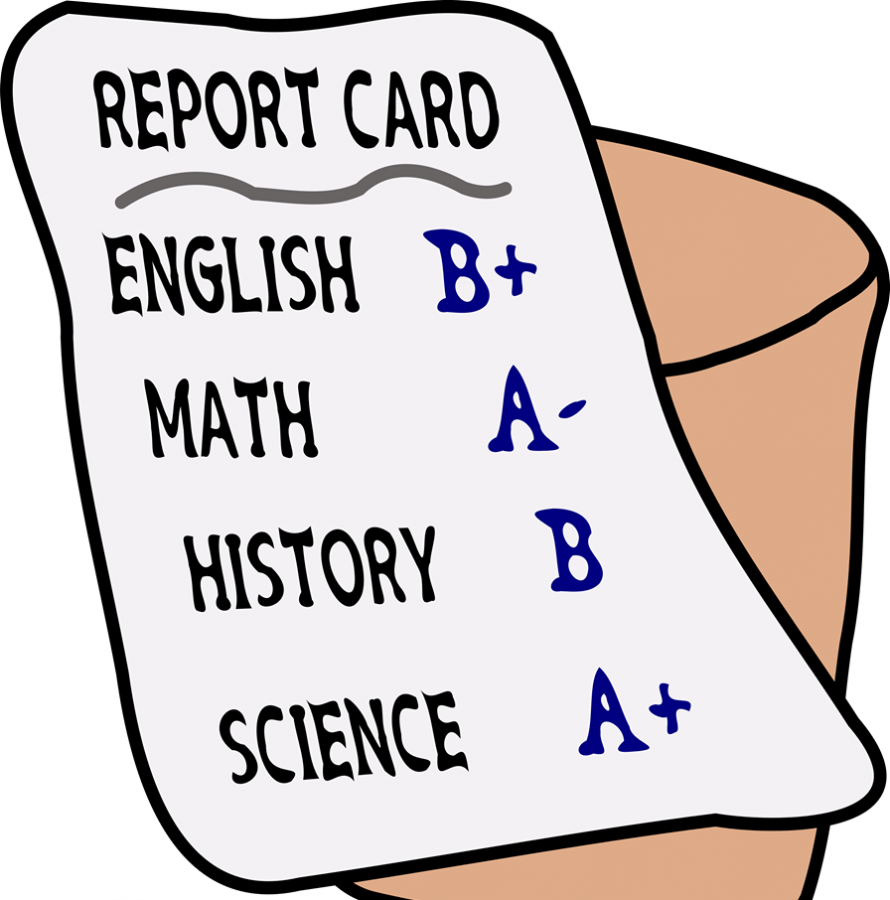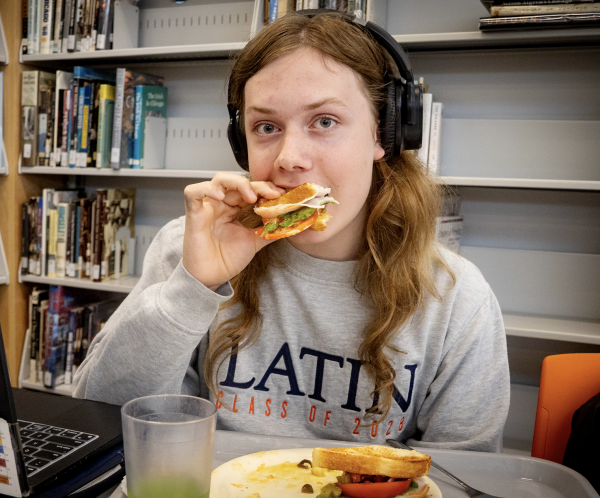Disparities in Teacher Difficulty at Latin
March 1, 2020
by Media Editor Paige Hosbein and Staff Writer Charlie Williams
“That class is an easy A.” “It’s so unfair, my teacher is so much harder.” “We have completely different assessments.”
As students register for next year’s courses, many look for advice on how to balance their schedules. With that comes discussions of which classes and which teachers are perceived to be easier than others. The most significant complaint from students seems to be the high variability in teachers’ grading styles, content, and therefore difficulty, unknown to outsiders, such as colleges.
One student, who wished to remain anonymous, said, “The English department is not at all equal. Compared to my friends, I was not at all challenged, and now I feel like I am at a large disadvantage for college. This year, I signed up for a super hard English teacher on purpose in hopes the class would make me a better writer, but then I got a bad grade.” Besides difficulty inconsistencies, course content also seems to heavily vary depending on the teacher.
Sophomore Izzy Oberman said, “I know, for example, two sophomore classes are reading the book White Tiger in english, but the way we’re learning about them and what we get out of them is totally different.”
Given these inconsistencies, some students take specific courses solely because they heard the teacher grades ‘more easily,’ and not because they are genuinely interested in the course’s content. English teacher Mr. Joyce said, “Of course, I’m sympathetic to such behavior. There’s a lot of pressure on Latin students. On the one hand, pressure produces discipline, but it can also stifle creativity and risk-taking. The good news, I think, is that any English class you end up taking will help develop your reading and writing skills—especially if you apply yourself to the content.”
Likewise, Mr. Greer isn’t always against students choosing classes based on the teacher: “I think if students have positive experiences with teachers in the past and they want to continue those then that is a great thing. My concern is that the reputation that certain teachers might gain will be inaccurate, so I would hope that students both really look at the material in addition to the teacher.”
However, choosing classes based on the teacher does not always work out. Sophomore Alex Lindemann said, “I took Euro-lit at the start of the year for Mr. Gupta, but now he’s gone.”
Dr. June said, “You have to pick the things that interest you. You might be really excited about the teacher or a friend that’s in the class, but that’s not gonna get you through the year. At some point, you’re gonna have to be really interested in the topic and care about it enough to do well in it.”
When Dr. Amankona was asked about the grading distribution of classes with different teachers, he said, “The students in the classroom affect the class a lot. My C block honors chemistry is a very different class than my E block honors chemistry.”
In the same vein, Mr. Stroup said, “Occasionally, math course teams will check in and compare their class’ grade distribution. With that being said, we don’t expect every section of a class to have the exact same grade distribution.”
In response to Dr. Amankona’s comment on classroom dynamics, sophomore Sean Episcope suggested a solution: “Maybe start with the caliber of student that get in [to honors classes]. I know that petitioning is a big part of Latin, and how if you want to take a harder class you can, but I don’t think that just anyone should be let into a harder class just because they petition. I wish there was a test you could take to see if you could be in the class instead of just getting in.”
Teachers recognize these criticisms, and they are constantly working to find solutions. According to Mr. Greer, the English Department has calibration meetings, where they grade sample essays together to create a baseline of their grading structures. Similarly, Mathematics Department Head Mr. Stroup said, “Before school starts, teachers in the math department meet in course teams and decide what their grading structure and syllabi will look like to ensure consistency. To make sure our expectations are aligned, the math department may look at a sample assessment all together and decide what grade this would warrant, what standards are we looking for and how did the student meet them, what feedback would we give the student.”
Dr. Amankona said, “Any time any of us [chemistry teachers] grade, we do check each other’s work to make sure that we are more or less doing the same thing.” With the new structure of standards-based grading, he said, “We almost always agree on the tens. But, when the student has made certain errors, and they haven’t shown complete understanding, then what is that? A six or an eight? Those are the ones that we sometimes need to talk about.”
“The issue of consistency is always on my mind because we want teachers to be autonomous and bring their unique teaching styles to class, but that can also leave a lot of uncertainty between classes,” said Mr. Greer. He hopes that standards-based assessments help to reduce inconsistencies. “When teachers write those standards, they’re together. We know we’re not perfect, but this is the very beginning.”
Although HUSH is not a standards-based class, Dr. June said, “I think the agreement in the history department is that standards are the way to go. Although we have set rubrics for writing assignments, we’re still using the older mode; we’re definitely in a transitional phase.” Dr. June explained that the history department is currently working on a rubric for all 10th grade history classes. He concluded, “The hope is to have a set of standards and one overall rubric for HUSH by next year as well.”
Even with all these efforts to ensure consistency, grades mean different things to different teachers. Dr. Amankona views grades as another form of feedback. Because retakes are available to students, he said, “I don’t feel really bad at all about giving a student a five or a six… this in a way allows me to keep a higher standard of my students and they have the time and resources to meet that standard.” He added, saying “When I grade, I’m trying to give the student feedback on where I think they are. I’m very comfortable giving firm feedback. The feedback may feel harsh, but that’s because I need my students to know that this is where you are and this is how much more work you need to do.” When further questioned about why he doesn’t worry about the effects of harsh grading on students, Amankona replied, “I need to be transparent about [grading], I don’t want to sugar-coat it. I need my students to know, ‘this is where you are, and this is what you need to work on to show mastery.’”
Ultimately, Dr. June describes grading disparities as inevitable: “We all do the best we can to be as fair as possible. It might not even be between two different teacher’s grading, but there might be a difference on how I see an essay when I’m grading at 9 am versus if I’m looking at it at 9pm.”























































